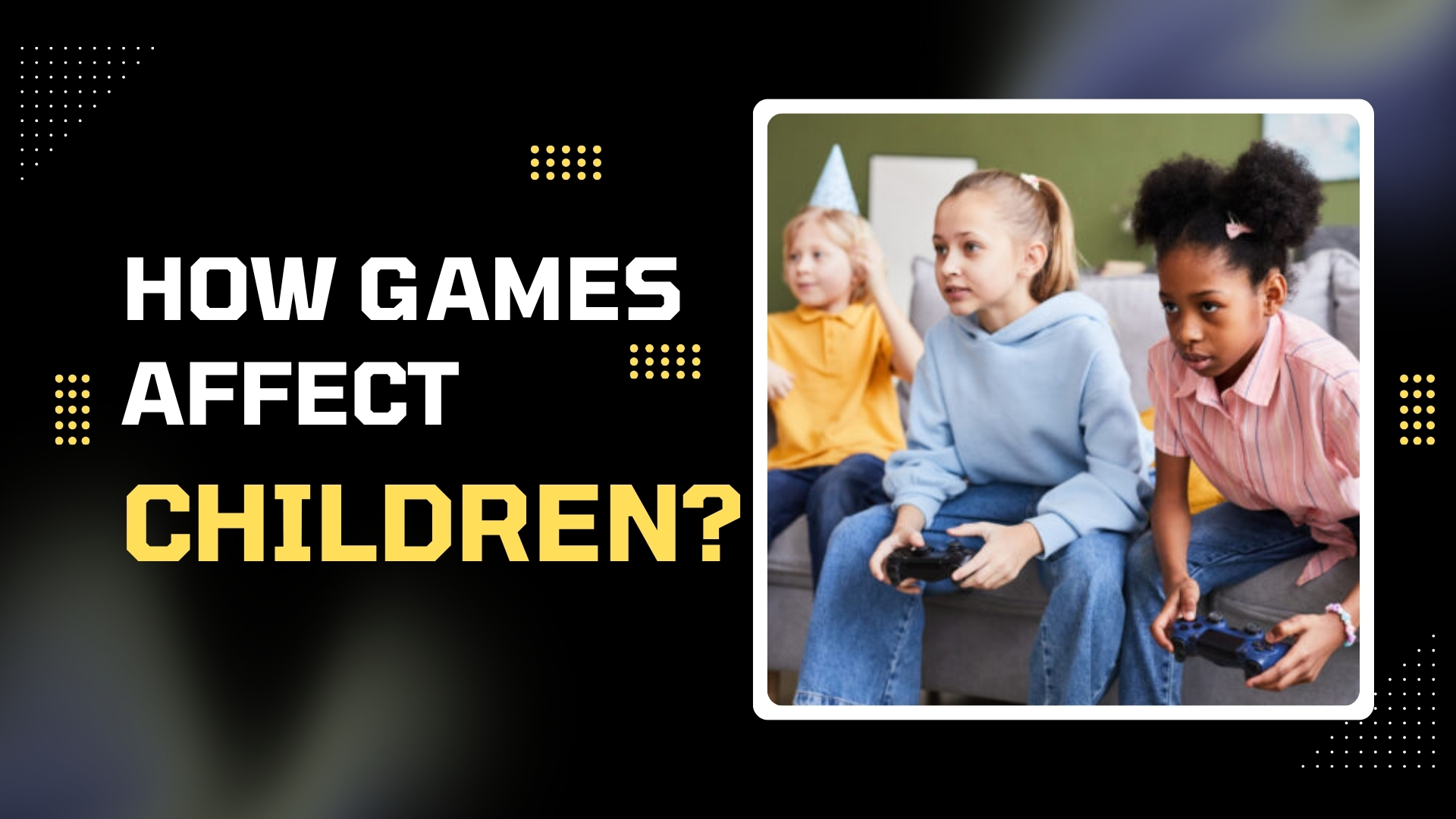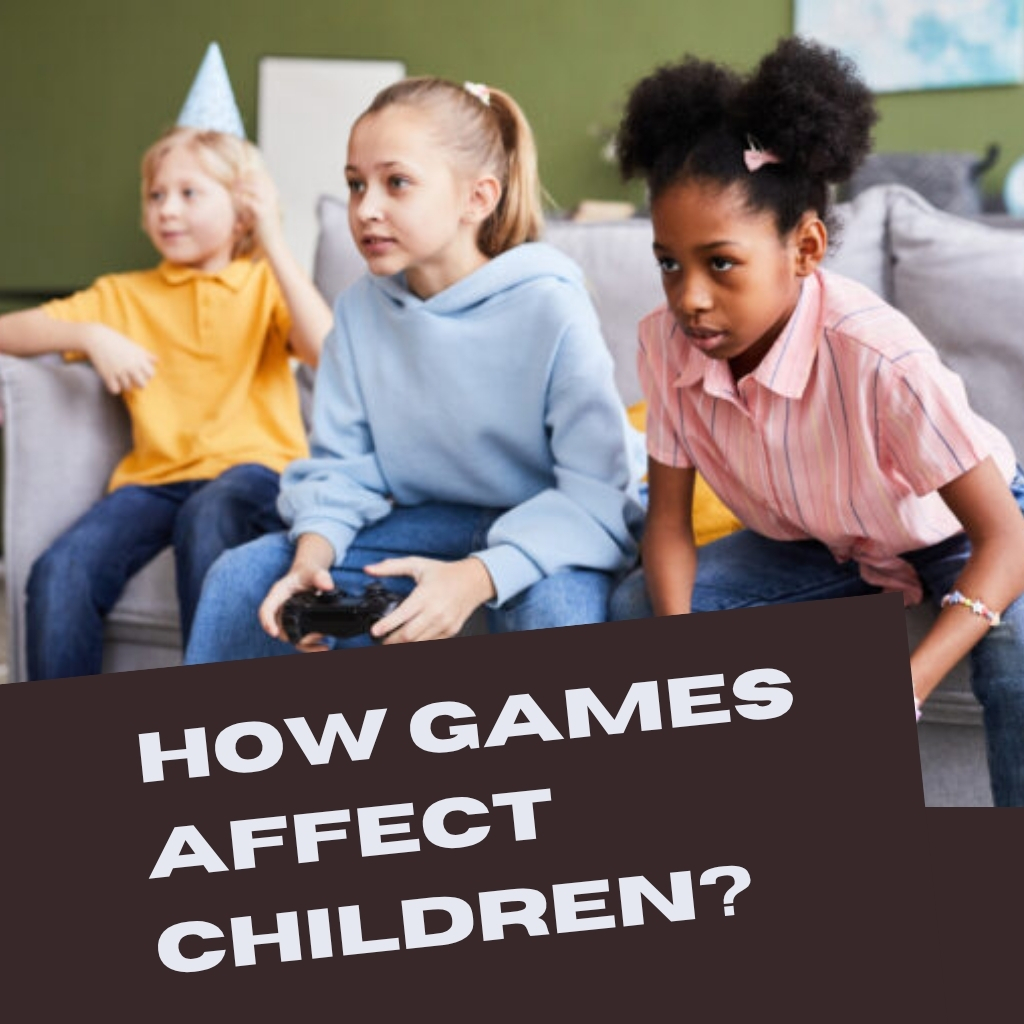In today’s digital age, games are an integral part of childhood. From educational apps on tablets to immersive video game worlds on consoles and PCs, children are exposed to a vast array of gaming experiences. But how do games affect children? This question is at the forefront of many parents’, educators’, and psychologists’ minds. While some view gaming as a valuable tool for learning and socialization, others worry about potential negative consequences such as addiction, aggression, or impaired academic performance.
This article delves deeply into the multifaceted effects of games on children. We’ll explore both the positive and negative impacts, examine the latest research, and provide practical advice for parents and caregivers. Whether you’re concerned about screen time or curious about how gaming can foster creativity and critical thinking, this guide will help you make informed decisions about your child’s gaming habits.
The Positive Effects of Games on Children

Cognitive Development and Learning
One of the most significant positive impacts of games on children is the enhancement of cognitive skills. Many games—especially puzzle, strategy, and educational games—require players to solve problems, think critically, and make quick decisions. Research has shown that children who play such games often exhibit improved memory, attention span, and spatial reasoning.
Key cognitive benefits include:
- Improved problem-solving skills: Games often present challenges that require creative solutions.
- Enhanced memory: Many games require players to remember rules, patterns, or storylines.
- Better hand-eye coordination: Action and simulation games can improve motor skills and reaction times.
- Increased attention and focus: Fast-paced games demand sustained concentration.
Social Skills and Collaboration
Contrary to the stereotype of the isolated gamer, many games today are highly social. Multiplayer online games, cooperative missions, and team-based challenges encourage children to communicate, collaborate, and work towards common goals.
Social benefits of gaming:
- Teamwork: Children learn to cooperate and strategize with others.
- Communication: Online and local multiplayer games foster verbal and written communication.
- Friendship building: Shared gaming experiences can strengthen friendships and help shy children connect with peers.
Emotional and Psychological Benefits
Games can also serve as a safe space for children to express emotions, relieve stress, and build resilience. Overcoming in-game challenges can boost self-esteem and provide a sense of accomplishment.
Emotional advantages:
- Stress relief: Engaging gameplay can help children unwind after a stressful day.
- Emotional regulation: Games can teach patience, perseverance, and how to cope with failure.
- Creativity: Sandbox and world-building games encourage imaginative play and creative thinking.
The Negative Effects of Games on Children
While games offer many benefits, excessive or inappropriate gaming can have adverse effects on children’s development and well-being.
Academic Performance and Attention Issues
One of the most common concerns is that gaming can interfere with academic responsibilities. Excessive screen time may lead to reduced homework completion, lower grades, and decreased interest in reading or outdoor activities.
Potential academic drawbacks:
- Reduced study time: Time spent gaming may replace time for homework or studying.
- Attention problems: Fast-paced games can make it harder for some children to focus on less stimulating tasks.
- Sleep disruption: Late-night gaming can interfere with healthy sleep patterns, affecting concentration and learning.
Behavioral and Psychological Concerns
Some studies have linked violent or aggressive games to increased aggression in children, though the evidence is mixed. Additionally, gaming addiction is a growing concern, with some children exhibiting compulsive behaviors and withdrawal symptoms when not playing.
Behavioral risks:
- Aggression: Exposure to violent content may desensitize children or increase aggressive thoughts.
- Addiction: Some children may develop unhealthy gaming habits, neglecting other activities.
- Social withdrawal: Excessive gaming can lead to isolation from family and friends.
Physical Health Impacts
Prolonged gaming sessions can contribute to a sedentary lifestyle, which is associated with various health issues.
Physical health risks:
- Obesity: Lack of physical activity can contribute to weight gain.
- Eye strain: Extended screen time can cause digital eye strain and headaches.
- Poor posture: Sitting for long periods may lead to back and neck problems.
Comparing the Positive and Negative Effects of Games on Children
| Aspect | Positive Effects | Negative Effects |
|---|---|---|
| Cognitive Development | Problem-solving, memory, attention, coordination | Attention issues, reduced focus on academics |
| Social Skills | Teamwork, communication, friendship | Social withdrawal, online bullying |
| Emotional Health | Stress relief, self-esteem, creativity | Addiction, aggression, emotional desensitization |
| Physical Health | (Limited, unless active games) | Obesity, eye strain, poor posture |
| Academic Performance | Educational games can enhance learning | Reduced study time, lower grades |
Factors Influencing How Games Affect Children

Age and Developmental Stage
The impact of games varies depending on a child’s age and maturity. Younger children may be more impressionable and sensitive to violent or frightening content, while older children and teens may benefit more from complex, strategic games.
Game Content and Genre
Not all games are created equal. Educational games, puzzles, and simulations are generally more beneficial than violent or purely entertainment-focused games.
Time Spent Gaming
Moderation is key. The American Academy of Pediatrics recommends that children aged 6 and older have no more than 1–2 hours of recreational screen time per day.
Parental Involvement
Active parental guidance—such as setting limits, discussing game content, and playing together—can maximize the benefits and minimize the risks of gaming.
Tips for Healthy Gaming Habits
- Set time limits: Establish clear rules for daily or weekly gaming.
- Choose age-appropriate games: Use ratings and reviews to select suitable content.
- Encourage balance: Promote a mix of activities, including outdoor play, reading, and family time.
- Play together: Join your child in gaming to understand their interests and foster communication.
- Discuss online safety: Teach children about privacy, cyberbullying, and respectful behavior online.
FAQ: How Games Affect Children
Q: Can video games make my child smarter?
A: Certain games can improve cognitive skills like problem-solving, memory, and spatial awareness. Educational and puzzle games are particularly beneficial for intellectual development.
Q: Are violent games harmful to children?
A: Research is mixed. Some studies suggest a link between violent games and increased aggression, while others find no significant long-term effects. It’s best to monitor content and discuss in-game behavior with your child.
Q: How much gaming is too much for children?
A: The American Academy of Pediatrics recommends no more than 1–2 hours of recreational screen time per day for children aged 6 and older. Balance is key.
Q: What are signs of gaming addiction in children?
A: Warning signs include neglecting responsibilities, withdrawal from family and friends, irritability when not gaming, and loss of interest in other activities.
Q: Can games help children with learning disabilities?
A: Yes, many educational games are designed to support children with learning difficulties, improving skills like reading, math, and attention.
Conclusion
Games are a double-edged sword in children’s lives. When chosen wisely and played in moderation, they can foster cognitive development, social skills, and emotional well-being. However, excessive or inappropriate gaming can lead to academic, behavioral, and health issues. The key lies in balance, parental involvement, and thoughtful selection of game content.
By understanding how games affect children, parents and caregivers can guide their children toward healthy gaming habits that enrich rather than hinder their growth. Remember, games are just one part of a child’s world—encourage a diverse range of activities to ensure a well-rounded upbringing.